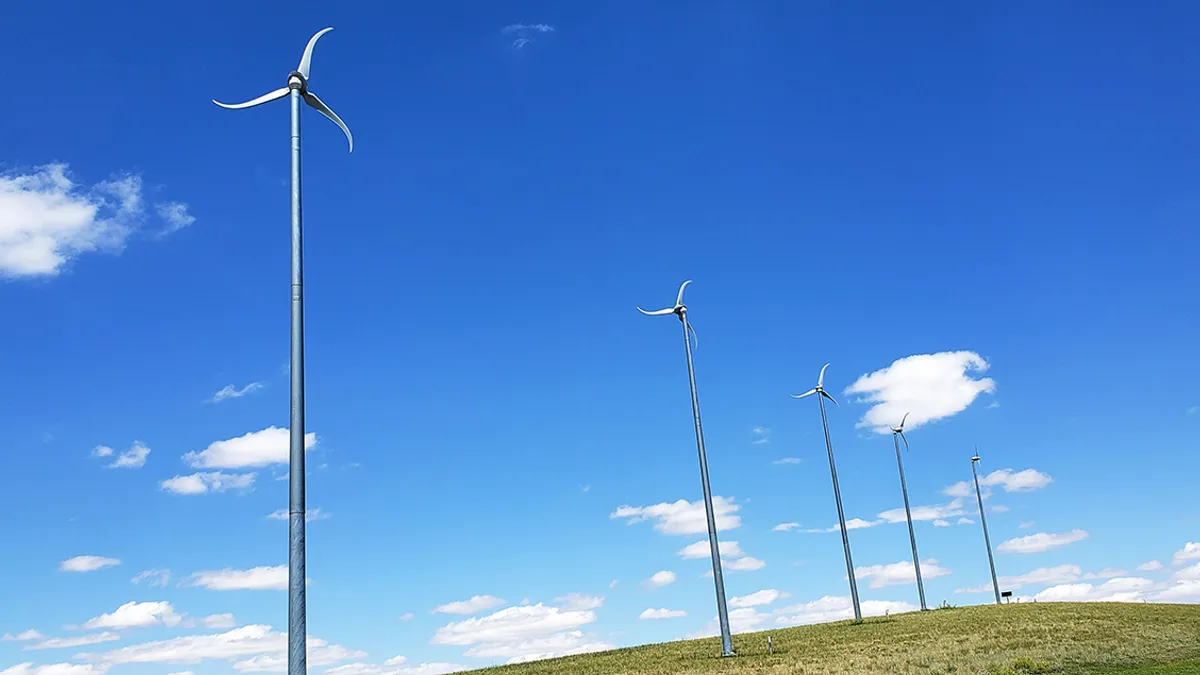The U.S. Department of Energy’s National Renewable Energy Laboratory on Tuesday issued a request for proposals from domestic manufacturers of small and medium-sized wind turbines, with the goal of expanding access to distributed wind energy technology.
The RFP was issued under the Competitiveness Improvement Project, a program offering up to $2.5 million in awards to manufacturers of turbines less than 1 MW in capacity “to support distributed wind energy technology commercialization and market expansion.”
“Certification and testing costs are often prohibitive for manufacturers our size,” said Chris Connor, a principal engineer of CIP award recipient NPS Solutions, in a release from NREL. “The technical and financial support available through DOE’s Competitiveness Improvement Project is vital for smaller distributed wind manufacturers, like us, to ensure the safety, quality, and performance of our products.”
The 2025 RFP offers award amounts up to $800,000 for winning submissions under the following topic areas: prototype design development, prototype manufacture, prototype installation and testing, component innovation, system optimization, small turbine certification and/or listing, inverter listing, type certification and listing, manufacturing process innovation, technology commercialization.
Applicants must provide the outline of a product development plan that includes a schedule for development and a description of expected impact to the U.S. economy and distributed wind market – such as “expanded domestic manufacturing, product deployment, and job creation as well as being more competitive with other distributed generation technologies,” the RFP said.
The project has awarded $18.5 million since its launch in 2012, according to NREL, and this year maximum award amounts have been increased for five of the ten topic areas “to offset the rising costs of turbine manufacturing, testing, and inverter listing and to accommodate high costs associated with medium-scale wind turbine development.”
“To help optimize the technology development process, a 2025 applicant will be able to propose follow-on efforts in one phased multi-topic-area proposal that can include up to three topic areas,” NREL said. “For example, an applicant may propose a Phase 1 effort to manufacture a prototype under the Prototype Manufacture topic area, followed by a second phase falling within the Prototype Installation and Testing topic area, and then a Phase 3 effort within the Small Turbine Certification and/or Listing topic area.”
In addition to expanding access to distributed wind technology, NREL said the CIP awards are aimed at helping manufacturers to “optimize their designs, develop advanced manufacturing processes, [and] perform turbine and component testing and certification.”
“Advancing these wind energy systems to commercialization is technically challenging and resource-intensive for small businesses, which often lack the capacity to develop, certify, and commercialize their technologies on their own,” NREL said.
RFP submissions are due March 28.















